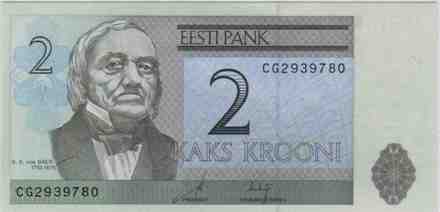
Albrecht Daniel Thaer (1752 – 1828) was a renowned German agronomist and an avid supporter of the humus theory for plant nutrition.
Maria Montessori (1870 – 1952) was an Italian physician, educator, philosopher, humanitarian best known for her philosophy and the Montessori method of education of children from birth to adolescence. Her educational method is in use today in a number of public as well as private schools throughout the world.
John Flynn, (1880 – 1951) was an Australian minister and aviator who founded the Royal Flying Doctor Service, the world's first air ambulance.
Francisco José de Caldas (1768 – 1816) was a Columbian naturalist, and geographer. Caldas was part of numerous scientific expeditions including the ones with José Celestino Mutis and Alexander von Humboldt. He travelled across the New Kingdom of Granada exploring the newly found land, studying flora, fauna, geography, meteorology and cartography. In 1805 Caldas was appointed by Mutis to direct the Astronomic Observatory.
José Celestino Mutis (1732 -1808) was a Spanish botanist and mathematician.
Josif Pančić (1814 – 1888) was a Serbian botanist. He was a famous lecturer at the Great School in Belgrade and the first president of the Serbian Royal Academy. Pančić worked as a physician in rural Serbia and documented its flora during his frequent visits there.
Oswaldo Cruz (1872 - 1917) was a Brazilian physician, bacteriologist, epidemiologist and public health officer who worked towards better sanitation for better health.
Karl Ernst von Baer (1792 –1876) was a Baltic German biologist and a founding father of embryology. He was also an entomologist, geologist and a meteorologist.
Sigmund Freud (1856 –1939) was a Jewish-Austrian neurologist who founded the psychoanalytic school of psychiatry. Freud is best known for his theories of the unconscious mind and the defense mechanism of repression and for creating the clinical practice of psychoanalysis for treating psychopathology through dialogue between a patient and a psychoanalyst.
Hideyo Noguchi (1876 – 1928) was a prominent Japanese bacteriologist who discovered the agent of syphilis in 1911.
Sir Alexander Fleming ( 1881 – 1955) was a Scottish biologist and pharmacologist. Fleming published many articles on bacteriology, immunology and chemotherapy. His best-known achievements are the discovery of the enzyme lysozyme in 1923 and the antibiotic penicillin for which he won the Nobel Prize in Physiology in 1945.
Carl Linnaeus (1707 –1778) was a Swedish botanist, physician, and zoologist, who laid the foundations for the modern scheme of binomial nomenclature. He is known as the father of modern taxonomy, and is also considered one of the fathers of modern ecology.
Charles Darwin (1809 – 1882) was an English naturalist who showed that all species of life have descended over time from common ancestors, and proposed the scientific theory that this branching pattern of evolution resulted from a process that he called natural selection. He published his theory with compelling evidence for evolution in his 1859 book On the Origin of Species.

Thaer on 10 German Reichsmark
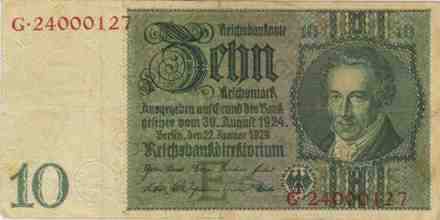
Montessori on 1000 Italian Lira
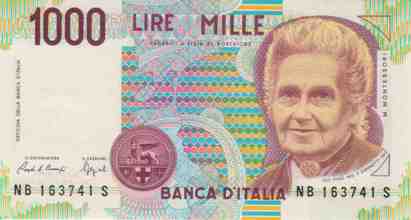
Flynn on 20 Australian Dollars

Caldas on Columbian Peso
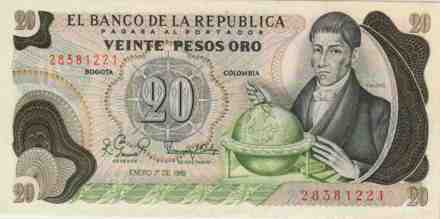
Mutis on Columbian Peso
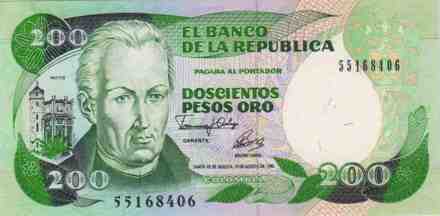
Pancic on Yugoslavian Dinara
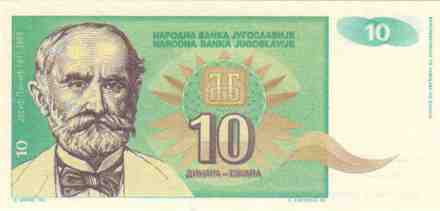
Cruz on 50 Cruzados of Brazil
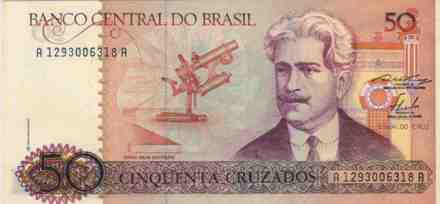
von Baer on 2 Estonian Krooni
Freud features on 50 Austrian Schilling banknote.

Noguchi on 1000 Japanese Yen.
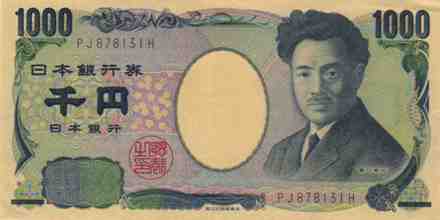
Sir Flemming honoured on Scotland's 5 Pounds issued by the Clydesdale Bank.
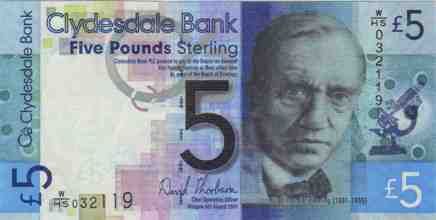
Linneaus honoured on 100 Swedish Kronors

Darwin honoured on 10 Pounds (England)

Nothing can be
more incorrect than the assumption one sometimes meets with, that physics
has one method, chemistry another, and biology a third.
~ Thomas Huxley
Biology has 50 more interesting years - James D. Watson